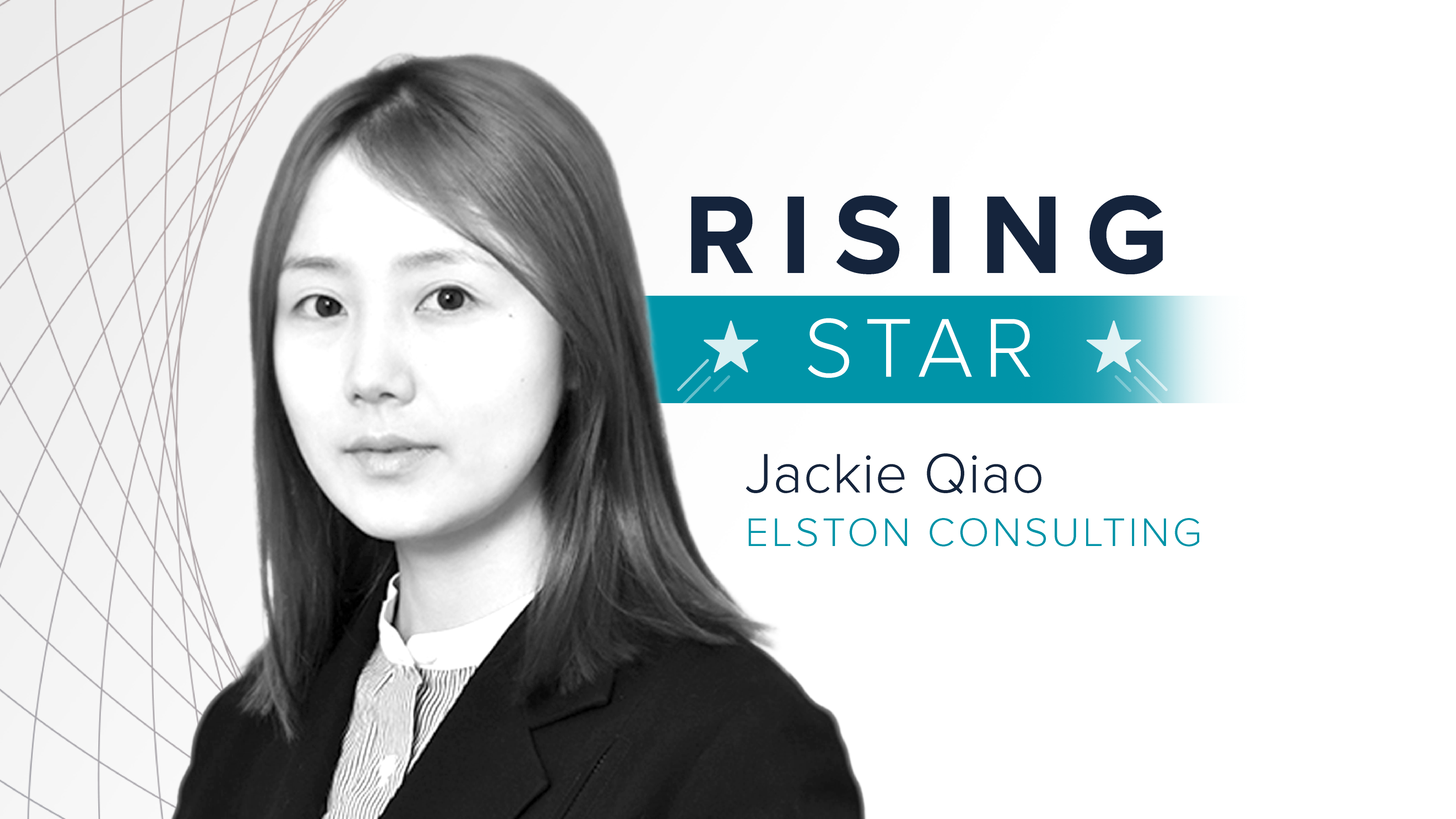Commencing the Rising Stars series, Elston Consulting head of fund research Jackie Qiao speaks to ETF Stream about starting her career in fund selection, her team’s approach to investing, Nobel Laureate inspirations and the need for greater transparency in funds.
Qiao began her career at Copia Capital Management, where she spent three years as an investment analyst, before joining Elston – which specialises in research, analytics and portfolio construction services – in 2021.
How did you get into fund selection?
My journey into fund selection began when I started working with Henry Cobbe and Hoshang Daroga after leaving university in 2018.
My initial role was to help build ETF screening processes. This was because our primary focus was on asset allocation to drive portfolio risk and return, implemented using ETFs.
In addition to ETFs, I am also involved in index fund selection and actively managed fund selection.
Whereas index funds and ETFs are very quantitative, active fund selection is qualitative as well and getting to meet active managers – both for single-asset and multi-asset strategies (like absolute return funds) – is always interesting and informative.
Who are your biggest influences?
Cobbe and Daroga have profoundly influenced my investment career, as I have worked with them since 2018, most recently since 2021 at Elston Consulting.
Henry's book, How to Invest with Exchange-Traded Funds (ETFs), introduced me to the essentials of ETF investing as well as broader asset allocation theory. Hoshang has also been an invaluable mentor, teaching me the intricacies of portfolio construction. Their guidance has been instrumental in my approach to designing investment solutions.
I am also deeply inspired by Nobel Laureate Youyou Tu's groundbreaking work in science, facing and overcoming substantial challenges as a woman. Her journey in science lights the way for me in the finance world.
It is so motivating to see her tackle challenges with such innovation and grit. It reminds me that, in finance too, we can make a big impact with resilience and hard work, especially as women aiming to make our mark in various professional areas.
What role do you play within your team?
I assume multiple responsibilities within my team, focusing primarily on fund research and selection, and also on portfolio analytics. I also provide support to advisers by addressing their queries and ensuring smooth operations through meticulous analytics and reporting.
A key aspect of my role involves understanding the unique requirements of independent financial advisers (IFAs), as at Elston, we design custom portfolios for financial advisers tailored to their specific target markets, instead of generic, one-size-fits-all mass-market solutions.
What is a particular area of interest or something you enjoy within ETFs?
My particular interest in ETFs stems from their agility when it comes to portfolio design and implementation. ETFs also stand out for their innovation – when an interesting theme or strategy is evolving, it is often the ETF providers that articulate and capture this first.
It is interesting to note that while many ETFs are synonymous with passive, they are “just” a fund format – one that enables intraday trading and broader liquidity. I have been watching the rise of active ETFs in the US with interest and it is interesting to see that trend starting to gain traction here too.
What type of investor do you see yourself as?
I view myself as a strategic investor who prioritises time in the market over timing the market, valuing patience and logic in my investment decisions. While I maintain a risk-focused approach, I am open to embracing new ideas and innovations.
My investment philosophy also involves dynamic asset allocation, continuously refining my portfolio to adapt to changing market conditions. This strategy allows me to balance between capturing new opportunities and mitigating risks, ensuring a well-rounded and forward-looking investment approach.
Where is further development needed within the fund selection space?
It is important that more emphasis is placed on making information and educational resources about a fund's underlying holdings more accessible during the fund evaluation process. Understanding a fund’s components is crucial for assessing its potential risk characteristics beyond volatility alone.
Whereas index-tracking funds and ETFs are fully transparent, some active funds do not disclose more than the top 10 holdings, which makes it harder to evaluate the fund as a whole. More disclosure is always welcome.
Another area of development is cost comparison within fund-of-funds. If the changes proposed by the House of Lords Private Members Bill go through, funds holding investment trusts might be able to reduce their reported ongoing charges figure (OCF).
This would create an uneven playing field for funds that hold other types of fund formats like open-ended investment companies (OEICs) and ETFs. How the Financial Conduct Authority (FCA) interprets any new legislation will be key.



